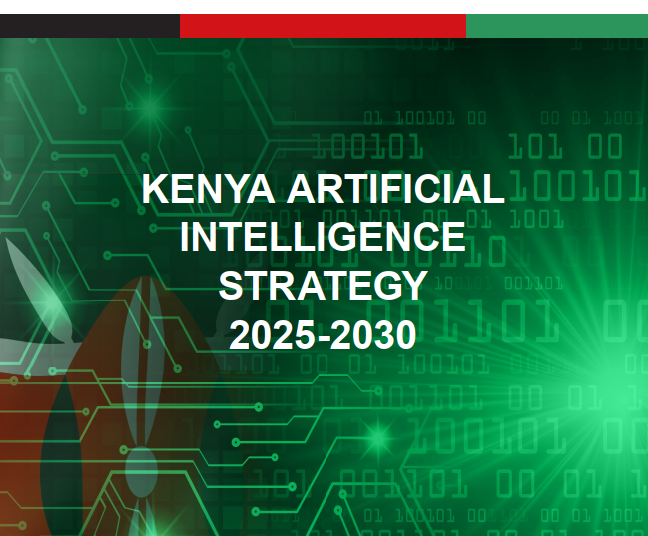The University of Nairobi (UoN) held a side event, following the official launch of Kenya’s National Artificial Intelligence (AI) Strategy. The event, co-hosted by the French Embassy in Kenya and the French Development Agency (AfD), was part of a broader agenda supporting the development of the University of Nairobi’s Engineering and Science Complex. It followed the February 2025 Paris AI Action Summit, underscoring Kenya’s increasing engagement with global AI developments.
During the event, Prof. Timothy Waema, a faculty member at UoN and a member of the committee responsible for drafting the Kenya AI Strategy, presented an overview of the document. He highlighted its seven pillars: AI digital infrastructure, data, AI research and innovation, talent development, governance, investments, and ethics, equity and inclusion. Prof. Waema also announced, “We shall be introducing an MSc in AI at the University of Nairobi in September 2025.”
In his remarks, Prof. Frederic Pascal of CentraleSupélec’s L2S Laboratory, a specialist in AI and applied mathematics, emphasized both the potential and the limitations of artificial intelligence. “AI can be used to deliver massive education,” he said. He warned, however, against the dangers of bias, noting that “AI and data technologies are reshaping our daily lives in various profound ways, both apparent and subtle, presenting both opportunities and challenges.”
Ambassador Arnaud Suquet, representing the French government, lauded Kenya for its leadership in the AI domain. “The adoption and the launch of the Kenya AI Strategy will propel Kenya to its leadership role not only in Africa but to greater heights,” he said.
Prof. Ayub Gitau, speaking on behalf of the Vice Chancellor as Deputy Vice Chancellor for Academic Affairs, applauded the University of Nairobi for its forward-thinking alignment with the national AI agenda. He noted the university’s commitment to the digitalization and optimized use of AI.
Kenya’s Special Envoy for Technology, H.E. Ambassador Philip Thigo, stated. “AI and data serve as powerful catalysts for addressing critical societal issues and hold immense promise for fostering a more secure and prosperous future,”. Thigo highlighted the strategy’s focus on multiple sectors, including agriculture, healthcare, urban development, manufacturing, education, security, and public service delivery. He added that the strategy “supports the establishment of vibrant local digital ecosystems, exchange practices, and culture by building the Silicon Savanna and Innovation Park.”
The Kenya AI Strategy 2025–2030 is among the first comprehensive AI roadmaps in Africa. It seeks to guide ethical and inclusive AI adoption while creating an enabling environment for innovation and talent development.
Source: UoN News








